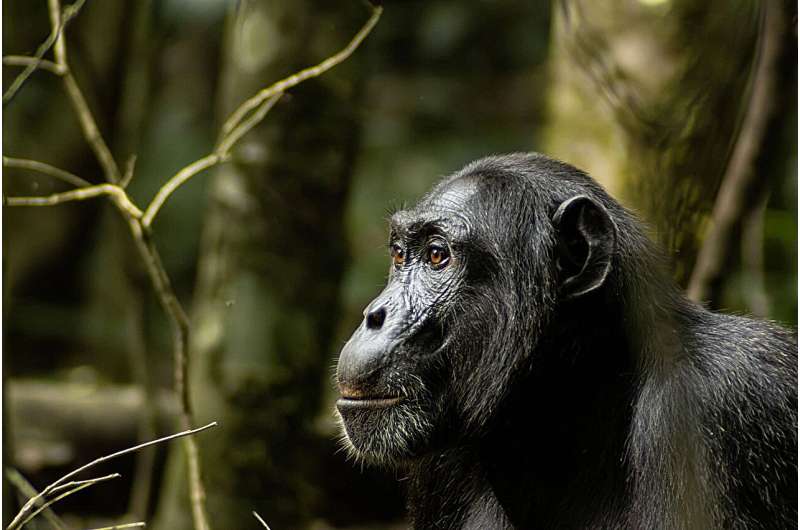
Long before COVID-19 forced most of the world behind masks and into isolation, viral diseases had been persistently jumping from humans to primate species, with drastic consequences.
The problem became particularly stark on Dec. 31, 2016, when a viral outbreak was detected at a field site for research on chimpanzees, called Ngogo, in Uganda’s Kibale National Park. The outbreak, from a virus that originated in humans, ultimately killed 25 of the nearly 200 Ngogo chimps, which researchers have studied for 30 years.
A new study led by a University of Arizona primatologist, published in the journal Biological Conservation, provides clear evidence that protocols such as quarantining, masking and more—those that became familiar during the pandemic—can help prevent outbreaks like the one at Ngogo.
The research could shape best practices to help keep chimps and other ape species safe—not only at research sites like Ngogo, but also at conservation sites that welcome swaths of tourists, said Jacob Negrey, an assistant professor of anthropology in the College of Social and Behavioral Sciences and the study’s lead author. Healthy chimps that humans can continue to study and appreciate, Negrey said, can ultimately lead to a better understanding of humans.
“We have really good reasons to think that chimpanzees that are visited regularly by tourists are at even greater risk of this sort of transmission because they’re exposed to a wider range of people on a daily basis,” said Negrey, who is co-director of the Ngogo Chimpanzee Project, the nonprofit organization that runs the research site in western Uganda. “The kind of trends we’re documenting here are really relevant to all of these human-chimpanzee interactions, not just ones related to research.”
Research at Ngogo began in 1994. The area is now a leading site for chimp research thanks to the size of the chimp population and its isolated location deep in the rainforest. The site is frequently featured in the media, notably in Netflix’s 2023 documentary series “Chimp Empire.”
Negrey has done fieldwork at Ngogo for 12 years, studying the factors that affect chimps’ health, especially age-related diseases and viruses. His work typically involves rising before dawn at a campsite in the rainforest before venturing out to find the chimps, observe their behavior and collect samples of their biological waste.
“You can be wandering through the forest and then there’s rustling and you realize you’ve almost walked into a herd of elephants,” Negrey said. “You have to really love the chimps and love the work that you’re doing because there’s a good chance you’re going to be peed on.”
The waste researchers collect is analyzed in labs, and the health data born out in the samples is logged for later study.


